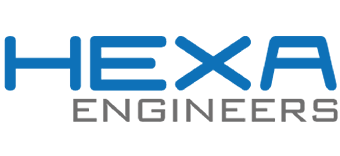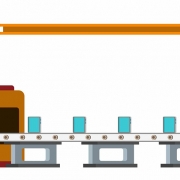A custom MES system or a standard one?
One of the doubts that usually arises every time a company has to make an investment in the implementation or renewal of a management program, has to do with choosing a custom-made software or a standard one. Both options may be valid but are not therefore equally relevant.
And so it is also with industries that decide to step forward and bet on a MES (Management Execution System) to monitor and trace production processes in a factory. Therefore, before heading to make a decision about which MES to choose, it is advisable to know a series of factors that help to opt for one alternative or another.
Some of the most decisive vectors to be considered are the ease and efficiency with which the software will be implemented, as well as the characteristics of the long-term relationship that will be maintained with the MES provider. The implementation project of a MES system has many edges and does not rest solely on the product in which you choose to invest. Hence, the aspects detailed below serve to evaluate the suitability of the service that a MES system provider can offer.
Project management and execution
Implementation of software as comprehensive as MES relies heavily on the project plan being carefully defined, structured, and executed. Although both the methodologies and the standardized and documented processes are relevant when opting for one supplier or another, surely the ability to adapt these processes for each implementation is even more so, which is still unique in the case of each industry. Hence, the person in charge of the project must be able to complete the necessary tasks in an individualized way, while overcoming the technical challenges as they arise, always with the team of the company where the MES is implemented. Virtues such as the management capacity, the knowledge of the system and the technical skills of the team of professionals are decisive for the investment object to come to fruition.
Configure and customize
Some MES systems are almost 100% standard and are previously configured as ready to use, while others are largely created from scratch depending on the project they are intended for. Regardless of the type of MES system chosen, it is very important that the supplier is dynamic, creative and capable of designing and implementing solutions to one unique manufacturing requirements or equipment. To do this, the supplier should have designers and developers who have a deep understanding of how and why the product was designed. In this sense, the problem of relying on standardized management systems usually lies in the fact that third parties or subcontractors can be in charge of a process as decisive as the implementation of an MES.
Training and certification
It should not be overlooked that a well-implemented MES system can also fail if all users do not know in detail how to use the system adequately and efficiently to perform their job functions. Ideally, the MES provider has formal programs, curricula, and objective tests to ensure that users are fully trained. And these programs and plans should be focused on the specificities of each implementation, given that the case of industry is usually unique. In addition, you should also be able to offer programs that allow and encourage users to stay up-to-date with their knowledge as new features and functions are added or improved.
Audits
Each supplier faces logical changing customer requirements, changing business conditions, and a certain turnover of staff. All these factors can, over time, affect the virtues that a MES system offers. So it is crucial that an MES provider is willing to carry out occasional checks to see if the system is still optimized. Usage audits are aimed at the system obtaining the maximum ROI time after the implementation project ended.
Technical support
The relationship with the MES provider does not end when the implementation project ends, but in the following exercises you must offer personalized technical assistance, the necessary software updates and an adequate expansion of the system. It is essential to be clear in advance about the provider’s support structure, the size and availability of staff, and the response times to which it is committed. Likewise, the cost model and the frequency of the corrections and software updates that will occur must be previously known. In this sense, a tailored MES system can be much easier to correct and update, since from the beginning it has been shaped more closely to the unique reality of each production plant.
The economic aspect
Although standard software may initially seem cheaper in the short term, reality often dictates otherwise. Factors such as the adaptations required by a MES system to each specific case, end up assuming a higher cost over time. In addition, a standard system usually includes the payment of certain licenses included in it that are never used in many cases and that unnecessarily make the product more expensive.










